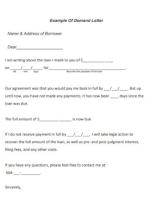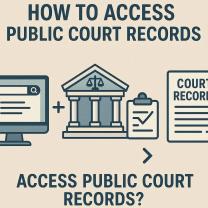What is the purpose of the Bluebook system?
The Bluebook system, formally known as "The Bluebook: A Uniform System of Citation," serves as a widely recognized and standardized style guide for legal citation in the United States. Its primary purpose is to provide a set of rules and guidelines for legal professionals, law students, and academics to follow when citing legal sources and documents. The Bluebook system serves several important purposes:
Uniformity and Consistency: The Bluebook promotes uniformity and consistency in legal writing and citation practices. It ensures that legal documents and references are formatted consistently, making it easier for readers to locate and understand the cited sources.
Clarity and Precision: Legal writing often involves complex and technical information. The Bluebook's rules and conventions help ensure that citations are clear, precise, and easy to follow. This is especially important in legal documents, where the accuracy of citations is critical.
Legal Research: The Bluebook provides guidance on how to cite a wide range of legal sources, including cases, statutes, regulations, law reviews, and court rules. It helps legal professionals and students navigate the vast body of legal literature and conduct effective legal research.
Respect for Legal Tradition: The Bluebook system incorporates longstanding legal citation traditions and practices. It pays homage to legal history and ensures that legal documents maintain a connection to legal precedent and established norms.
Communication: Legal professionals rely on precise citations to communicate effectively with colleagues, courts, and other stakeholders. The Bluebook system helps ensure that citations are accurate and correctly formatted, minimizing the risk of misunderstandings or misinterpretations.
Academic and Professional Standards: Law schools, legal journals, and the legal profession often require adherence to the Bluebook system as a standard for academic and professional writing. Following Bluebook rules is essential for students and professionals to meet these standards.
Legal Education: The Bluebook is used as a teaching tool in law schools to train students in proper legal citation practices. It plays a role in legal education by helping students develop skills in legal research and writing.
Legal Ethics: The proper citation of legal sources is an ethical obligation for attorneys. The Bluebook system supports ethical conduct in the legal profession by ensuring that attorneys accurately cite and reference legal authorities in their work.
Court Proceedings: The Bluebook system is often followed in legal briefs, court documents, and legal opinions. It facilitates the referencing of legal precedents and statutes in court proceedings.
Publication Standards: Legal journals and publications often require authors to adhere to Bluebook citation standards when submitting articles and manuscripts for publication.
In summary, the Bluebook system serves as a comprehensive and authoritative guide for legal citation, enabling legal professionals and scholars to communicate effectively, maintain the integrity of legal writing, and uphold the highest standards of accuracy and professionalism in the field of law.
The Bluebook System's Purpose: Understanding Its Significance
The Bluebook: A Uniform System of Citation is the standard reference guide for legal citation in the United States. It provides detailed rules on how to cite cases, statutes, regulations, and other legal sources. The Bluebook is essential for legal professionals, including lawyers, judges, and law professors. It is also used by law students and scholars.
The purpose of the Bluebook is to promote uniformity in legal citation. This is important for a number of reasons. First, it helps to ensure that legal documents are clear and easy to read. Second, it helps to avoid confusion among legal professionals about the sources that are being cited. Third, it helps to promote accuracy in legal writing.
Legal Writing and Citation: The Role of the Bluebook System
Legal writing is a specialized form of writing that has its own unique rules and conventions. One of the most important aspects of legal writing is proper citation. Citation allows legal professionals to identify the sources that they are using and to support their arguments.
The Bluebook plays a vital role in legal writing by providing detailed rules on how to cite legal sources. By following the Bluebook's rules, legal professionals can ensure that their citations are accurate and consistent.
Navigating Legal Citations: Exploring the Purpose of the Bluebook
The Bluebook can be a daunting resource, but it is essential for legal professionals. It is important to understand the purpose of the Bluebook and how to use it to cite legal sources correctly.
Here are some tips for navigating legal citations:
- Start with the basics. The Bluebook's introductory chapters provide a good overview of the basic principles of legal citation.
- Use the Bluebook index. The Bluebook's index is a valuable resource for finding information about specific types of legal sources.
- Consult the Bluebook's rules. The Bluebook's rules provide detailed instructions on how to cite different types of legal sources.
- Use examples. The Bluebook includes numerous examples of citations. These examples can be helpful for understanding how to cite different types of legal sources correctly.
If you are having difficulty understanding the Bluebook or citing a particular type of legal source, you should consult with a legal professional.
The Bluebook is an essential tool for legal professionals. By understanding its purpose and how to use it, you can ensure that your legal writing is clear, accurate, and consistent.













